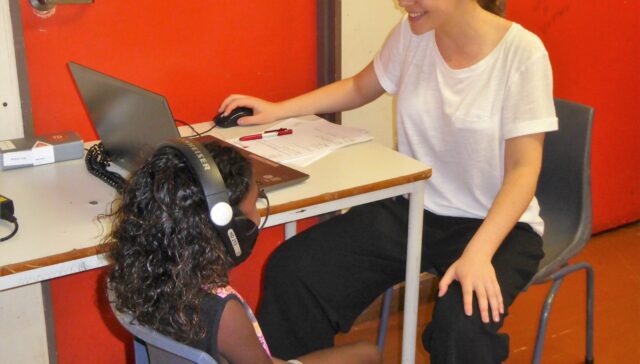

Congratulations to Associate Professor Mridula Sharma; Professor Gillian Wigglesworth; Professor Katherine Demuth on their grant success The ABC’s of listening and learning: a study in the Northern Territory. Indigenous Australian children experience middle ear disorders earlier in life and for longer periods than their non-Indigenous counterparts. The
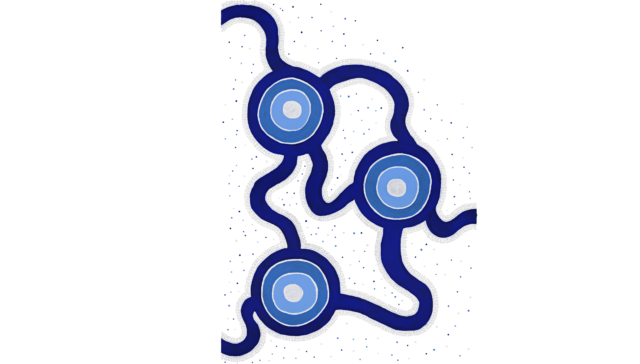
Hearing Australia embraces NAIDOC Week with celebrations of First Nation culture
Hearing Australia is proud to celebrate the history and culture of Aboriginal and Torres Strait Islander peoples and the importance of good hearing health, during this year’s NAIDOC Week.

10 questions with Dr Rebecca Kim
Dr Rebecca Kim is a Lecturer in Department of Linguistics and Deputy Director of the Master of Clinical Audiology Program. As a researcher, she is interested in professional/client communication and access for deaf and hard-of-hearing people.
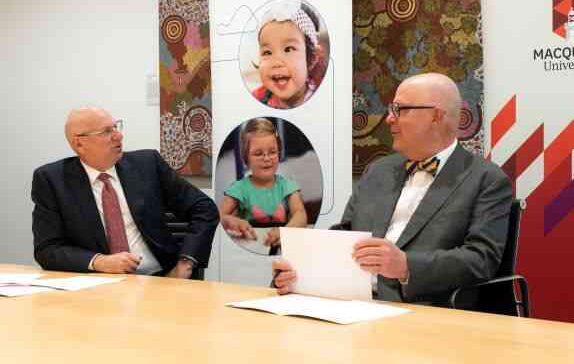
Macquarie University and Royal Institute for Deaf and Blind Children sign long-term partnership agreement
RIDBC will relocate their head office and create Centres of Excellence to the campus at Macquarie University in 2023, furthering their commitment to people who are deaf, hard of hearing, blind or have low vision.
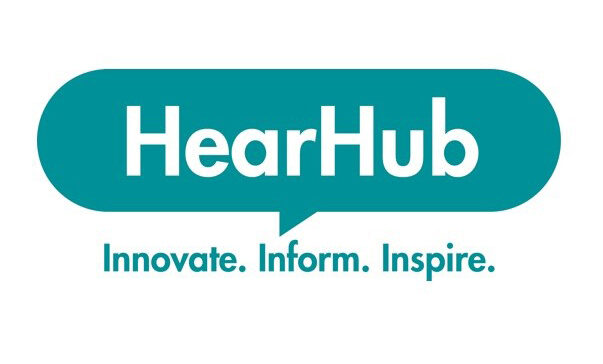
Going global with HearHub
The Shepherd Centre is excited to announce its newest initiative, HearHub, an online platform that will take its world-leading clinical programs global. With The Shepherd Centre’s 50 years of excellence in clinical program delivery and research, HearHub will ensure clinicians and families anywhere in Australia
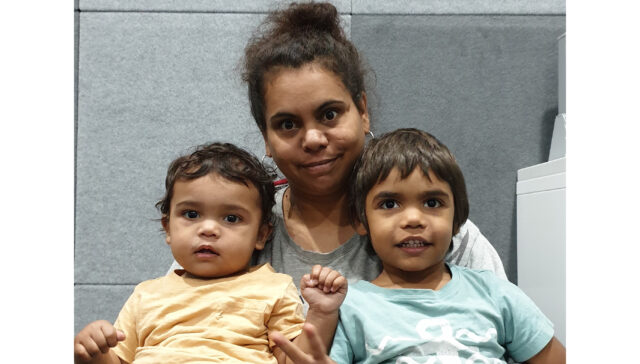
Hearing Australia delivering on commitments to improve the hearing health of young Aboriginal and Torres Strait Islander children
Hearing Australia is working with communities across regional, rural and remote Australia to tackle high rates of hearing loss in young Aboriginal and Torres Strait Islander children. To date, Hearing Australia’s Hearing Assessment Program – Early Ears, dubbed, HAPEE, has conducted diagnostic hearing assessments of
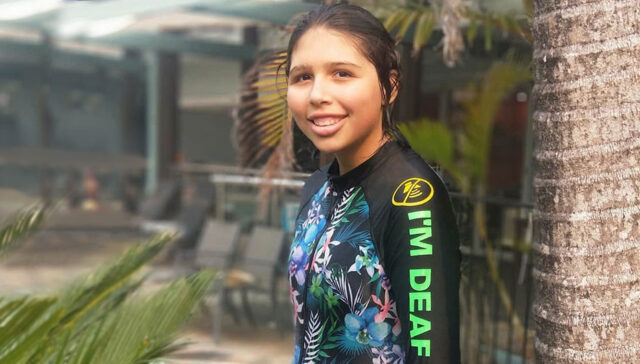
Allie advocates for children with hearing loss
Allie received a cochlear implant two years ago, when hearing aids were no longer enough. Now, she’s on a mission to help other children who are deaf or hard of hearing.
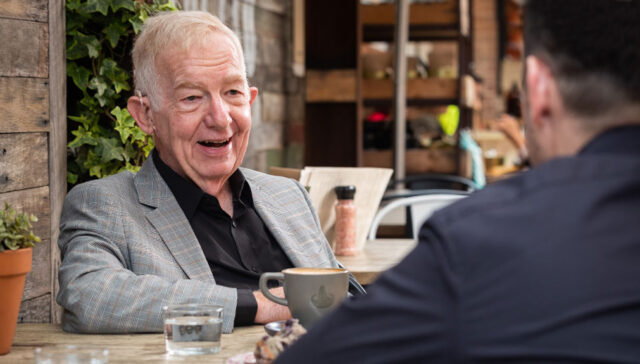
Anthony regains his hearing after 53 years
With bilateral cochlear implants, Anthony is reengaging with his life on every level. Here, he shares his emotional journey to hearing and reminds others that you don’t have to live with hearing loss.

Australian experts join international hearing experts to publish a landmark consensus on treating adult hearing loss
World-first consensus published in JAMA Otolaryngology recommends ‘minimum international standard of care for cochlear implantation’, including diagnosis, referral, treatment and aftercare for adults living with severe to profound sensorineural hearing loss[1] Landmark consensus provides optimism people in Australia living with severe to profound hearing
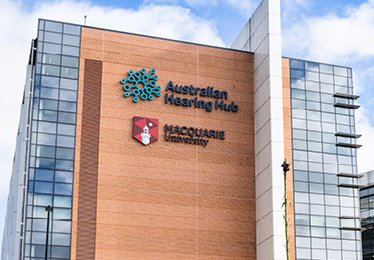
New Cochlear Chair in Hearing and Health appointed at Macquarie University
Macquarie University and Cochlear Ltd today announce the appointment of the Cochlear Chair in Hearing and Health. This co-funded role strengthens the existing partnership between the two organisations, enhancing the University’s position as a global leader in hearing research and practice, and supporting Cochlear’s goals to improve understanding
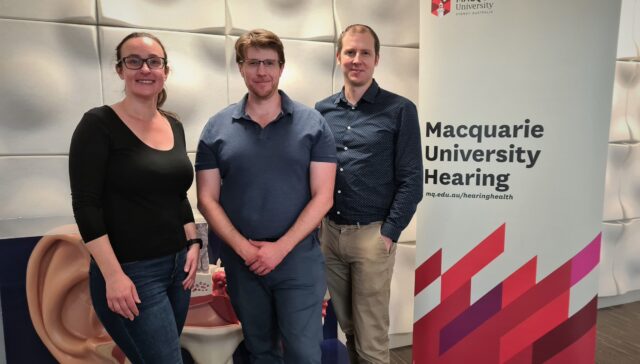
Macquarie University Linguistics staff to lead prestigious UN hearing project
Researchers from the Department of Linguistics, in the Australian Hearing Hub, have been awarded a highly competitive grant from the United Nations’ Global Partnership for Assistive Technology to address hearing loss in low- and middle-income countries (LMICs). Principal Investigator Dr John Newall and his fellow researchers, Associate Professor Piers Dawes
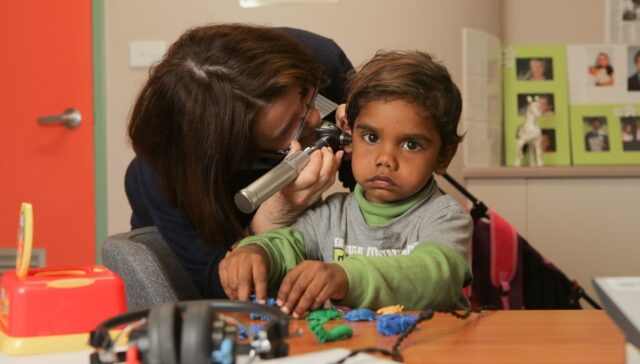
Indigenous health research into the care of persistent hearing loss is high on the agenda for Macquarie University
A Macquarie University research team has been awarded a government grant of $1,961,473.90, over three years, by The Medical Research Future Fund to complete a study on improving care pathways for treating middle ear disease in Aboriginal children. Compared with the non-Indigenous population, middle ear




